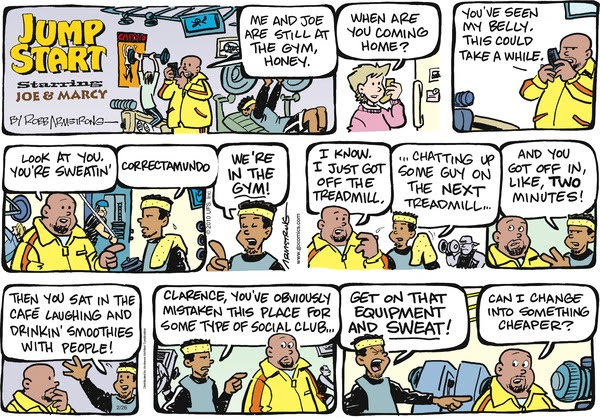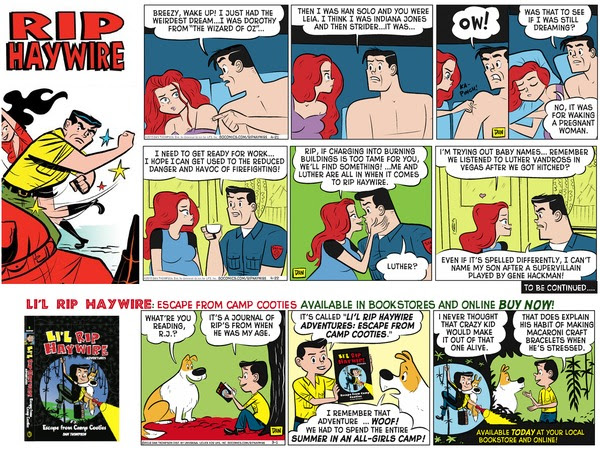Phrase out of Place
As a rule, you should put similar parts of a sentence together. For example, if a sentence has two subjects, put them together.
Tom and Dave played tag.
S S V DO
What happens when you don’t put them together? You get confusion!
Tom played tag and Dave
S V DO ?
Huh? Is “Dave” some new kind of game that Tom played? After all, it’s right next to the direct object.
That example is trivial, perhaps, so here’s an example from real life:
Access in divisional and functional areas is too broad in some systems, increasing security risks for potential misappropriation, due to IT [the Information Technology department] owning systems instead of the business areas.
Look at the part after “due to.” “IT” is the subject, “owning” is the verb, and “systems” is the direct object. What is “business areas”? I don’t think IT would be owning business areas, so let’s rewrite the sentence so you can tell that “business areas” is another subject:
Access in divisional and functional areas is too broad in some systems, increasing security risks for potential misappropriation, due to IT instead of the business areas owning systems.
That makes more sense! Go thou and do likewise.
Subscribe to this blog's RSS feed
The Second Most Common Mistake
—in English! In English! I’m sure this is nowhere near the top of the list of mistakes humans make. This might not even be second on the English grammar list, but I think it comes right after the one where someone, trying deliberately to be high-class, says “between him and I.”
This error is using “whom” when “who” is actually correct (or in this case, “whomever” and “whoever.”). First, the rule: when you have a subordinate clause, work from the inside out. Here’s an example of the mistake, from Edge of Adventure. Look at the first panel in the bottom row. Can you tell why he should have said “whoever”?
Yes, “to” is a preposition, and the clause that comes after it is its object. But that clause has its own subject and verb! And since we work from the inside out, being the subject of that clause takes precedence over the whole clause being an object, so it’s “whoever did this.” If you really want a “whom” in that sentence you could say something like “…to whomever I find on the trail.” Now “I” is the subject, and “whomever” is the direct object of “I find.” Make sense?
So sometimes you have permission to use “who.” Be careful.
A tricky Construction
Let’s start with the sentence in question, from the December 2016 Scientific American, page 46:
Planetary scientists such as me have pieced together this new, three-ring circus version of the active young solar system with great help from new tools for calculating the ages of meteorites, as well as the ages of planetary dust clouds—similar to our primordial solar system—elsewhere in the cosmos.
That “me” in the first line doesn’t sound quite right, does it? You definitely don’t say “me have pieced together.”
Well, “me” is correct! First, figure out the actual subject of the sentence. The subject is “scientists.” So planetary scientists have pieced together all that stuff.
Still, why “me”? “Such as” is a preposition, equivalent to “like,” or “with.” So “me” is the object of the preposition. It just happens to sit next to the verb, and that proximity creates the disconnect.
Rule of thumb: Pay attention to what you’re writing.
Why People use “I” after a Preposition
Because your grade-school English teacher corrected two mistakes at once.
You’d say something like the first three words in this Jump Start comic by Robb Armstrong:
The first “mistake” is putting yourself first when you mention yourself and someone else. Putting yourself first is perfectly grammatical; doing so isn’t humble, though. In our culture, we think mentioning yourself last is more polite, but I have seen scientific writing in which the team leader put himself first. Something like “I and my colleagues performed a series of experiments,” which makes sense if the colleagues were only helping out.
The second mistake is a real one, using “me” as the subject. If you hadn’t happened to mention that other person, you wouldn’t have gotten it wrong—no ones says “Me went to the store.” Well, unless they’re being deliberately funny.
The problem is that correcting two things at once is a bit of overload for a young mind, so you don’t notice that you have a compound subject in the corrected sentence, and later when you mention your friend and yourself after a preposition, you follow the whole double correction and say something like “The teacher really gave it to Tim and I.”
I remember being in a car once with a bunch of students, and I happened to use “[someone] and me” after a preposition, and one of the students delightfully corrected me for saying “me.” I praised her for being alert, and explained my sentence with a short version of this post. I have no idea whether any of the occupants of the car changed their manner of speaking. Oh well.
PS—wouldn’t you know, I ran into this same mistake the same day I saw that Jump Start. This one is Rip Haywire. The mistake is in the middle of cell 5, though I think some of you can relate to the top row of cells…
…and here’s someone, The Norm, who made the “corrected” mistake. Cell 3:
Funny thing about Infinitives
Did you know that infinitives can have a subject? Normally we think of the infinitive form of a verb as the form we use when we refer to the verb itself; it’s the citation form. We use it to mean the verb itself without anyone doing anything about it. Think of Shakespeare’s famous line in Hamlet:
To be or not to be, that is the question.
In fact, this construction treats the verb itself as a noun.
But that’s not the funny thing I’m thinking of regarding infinitives. The funny thing is (1) that infinitives can have a subject, just like a regular verb and (2) the subject is not in the nominative case! Sometimes the subject is in the possessive. In Tennyson, for example:
Theirs not to make reply,
Theirs not to reason why,
Theirs but to do and die:
Usually the subject is in the objective case:
He helped me to fix the car
I want him to get the prize
Which leads me to the Pickles comic that encouraged me to think about all this. (She gets it wrong, by the way—should be “whom.”)





